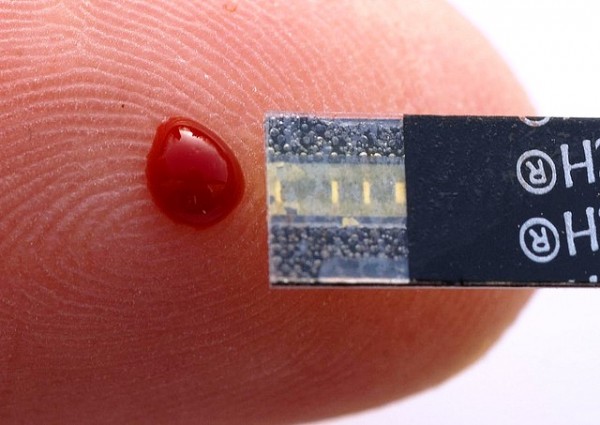Simple Blood Test can Help Detect Cancers: Study

Blood test can help identify cancer type, determine tumor growth and reaction to treatment, according to a study.
Previously, researchers analyzed levels of tumor DNA found in the blood of cancer patients to note changes and stages of the disease development but, this process was too complicated and challenging. Researchers from the Stanford University of Medicine developed new tests that conveniently helped them trace lung cancer and advanced stages of other solid cancers in 50 percent of the patients who were examined.
Ash Alizadeh, co-author and assistant professor of medicine at Stanford University said in the press release "We're trying to develop a general method to detect and measure disease burden. Blood cancers like leukemia can be easier to monitor than solid tumors through ease of access to the blood. By developing a general method for monitoring circulating tumor DNA, we're in effect trying to transform solid tumors into liquid tumors that can be detected and tracked more easily."
Cancer cells constantly multiply and perish, releasing DNA into the blood that can trigger growth of new cancer cells. Studying one out of nearly 1,000 or 10,000 DNA that are released to blood can help predict tumor volume, patients' response to treatment and record changes like treatment induced genetic alterations or mutations. For the study, experts used a method called the CAPP-Seq, or Cancer Personalized Profiling by deep Sequencing, which is a method for finding one molecule of tumor DNA from 10,000 other healthy molecules in the blood stream. But, the DNA structure of normal cells varies from that of mutated cancer cells and is found in very small amount.
Alizadeh adds, "Unlike Down syndrome, for example, which has a single dominant cause, for most cancers it's very difficult to identify any one particular genetic aberration or mutation that is found in every patient. Instead, each cancer tends to be genetically different from patient to patient, although sets of mutations can be shared among patients with a given cancer."
Researchers collected genetic data of 407 patients with non-small-cell lung cancer and located regions with 139 cancer mutation genes around the DNA.
Maximilian Diehn, lead author and assistant professor of radiation oncology said, "By sequencing only those regions of the genome that are highly enriched for cancer mutations, we're able to keep costs down and identify multiple mutations per patient."
In addition, they found they could recognize disease stages in patients with stage-2 or advanced stages and stage-1 in lung cancers and tumor volume that can be usually detected by CT and PET scans. The tumor circulating DNA post the cancer treatment shows if the patient is recovering or has increased possibility of the diseases recurrence.
"If we can monitor the evolution of the tumor, and see the appearance of treatment-resistant subclones, we could potentially add or switch therapies to target these cells," Diehn said. "It's also possible we could use CAPP-Seq to identify subsets of early stage patients who could benefit most from additional treatment after surgery or radiation, such as chemotherapy or immunotherapy."
The authors believe these tests are come in handy in screening various forms of cancer diseases like prostate, colorectal, lung and breast cancers that are commonly diagnosed in the U.S.
More information is available in the journal Nature Medicine.
Apr 08, 2014 08:58 AM EDT




